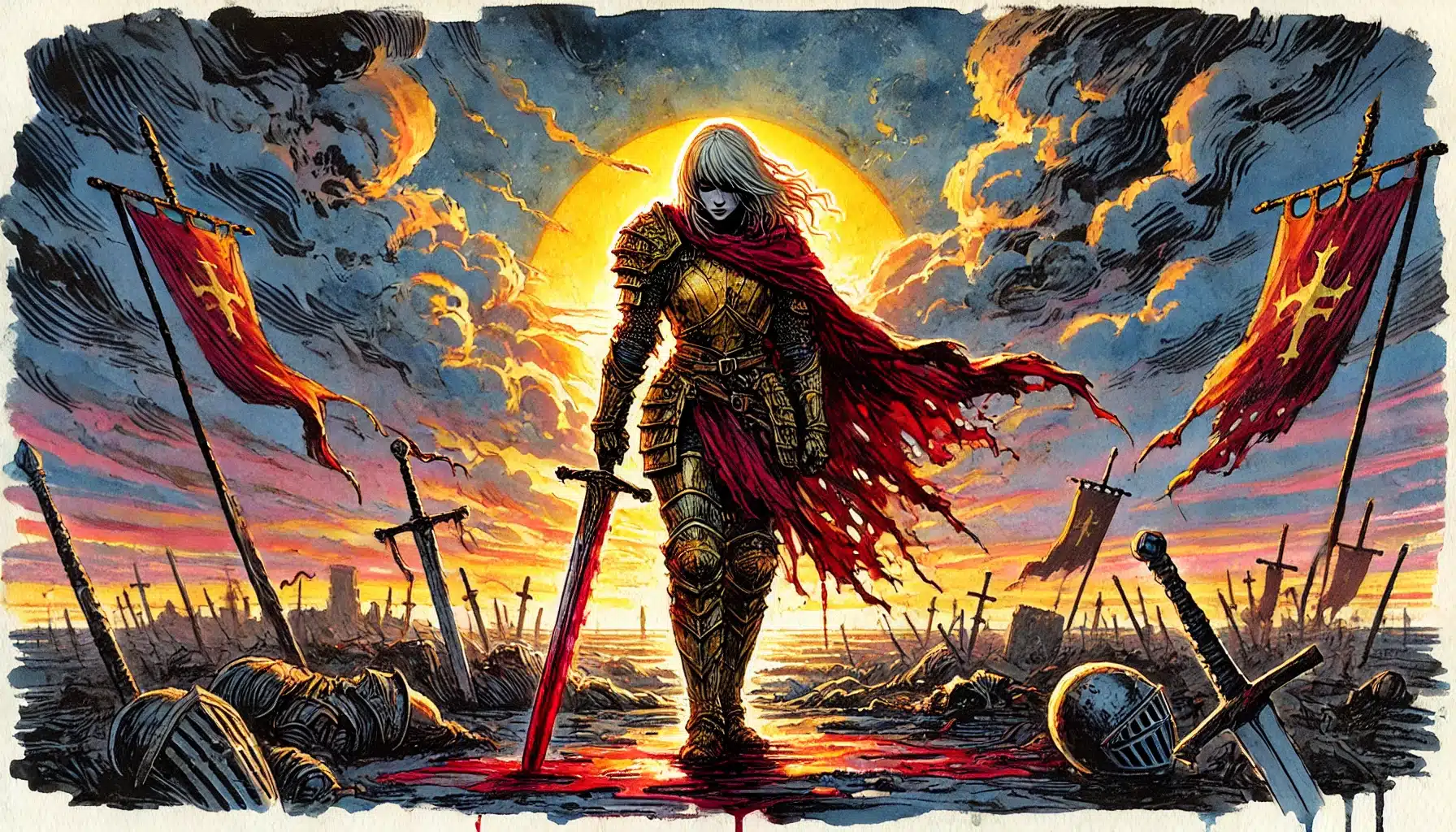Dungeons & Dragons, with its storied history and near-mythical status, still sits on the tabletop throne in 2025, casting a long shadow over gaming nights around the world. It’s the game that launches a thousand dice collections, the reason “natural twenty” is part of our cultural lexicon. Yet as much as D&D continues to shape the way we play and imagine, a new spirit of exploration and innovation is blossoming throughout the tabletop RPG scene, igniting the curiosity of veteran game masters and fledgling adventurers alike.
Outside the comfortable, hex-gridded expanse of the Forgotten Realms, players are hungry for new flavors—mechanics that reshape how stories unfold, fresh worlds that break from medieval fantasy, and narrative priorities that invite collaboration, experimentation, and personal investment. 2025 feels different; there’s a bubbling enthusiasm for systems that dare to question what an RPG can be, or how it ought to feel at the table. The hobby is embracing variety like never before.
This appetite for change isn’t just about novelty. When your group is in a creative rut, or you start noticing that every campaign feels eerily familiar, the answer might be less about swapping classes and more about jumping to a new system entirely. Different rulesets and settings often unlock unexpected drama, force fresh tactics, and invite everyone to see themselves (and each other) from new angles. Sometimes, the best way to reinvigorate your table is to step bravely beyond it.
What follows is a curated guide to five tabletop RPGs that are capturing the imaginations of players everywhere this year. They’re not just “alternatives,” but standouts—each with a vision, a vibe, and a voice all their own. Whether you’re chasing chills, epic battles, or poignant storytelling, something on this list is primed to shake up your next game night.
Why Try Something Other Than D&D?
Dungeons & Dragons is nothing short of iconic, but even icons have their blind spots. The game’s fantasy formula, wargame lineage, and emphasis on classic tropes mean it can’t satisfy every craving. Some players need rules that fade into the background; others want mechanics that sing with theme. Maybe you’re itching to swap swords for spaceships, or trade alignment charts for moral ambiguity. D&D is a robust platform, but it’s not infinitely elastic.
Other RPGs emerge precisely to answer these unmet needs. There are games where the dice take a back seat to drama, and battles are tools for exploring character relationships rather than parsing grid-based tactics. There are systems that plunge whole-heartedly into horror, mystery, science fiction, non-Western mythologies, or dream logic—worlds that feel risky, intimate, and shockingly alive. These alternatives allow for tone and genre shifts that might be impossible, or at best awkward, to pull off in a conventional D&D campaign.
Try my AI Tabletop RPG generators...and an extensive library of content!
The TTRPG landscape is as vibrant as it’s ever been. By dipping into different systems, you embrace the multifaceted brilliance of tabletop gaming—its capacity to foster empathy, tension, discovery, and joy in endlessly inventive ways. The question isn’t whether you should try something other than D&D, but rather, how soon will you let your group be surprised by what else is out there?
Here are just a handful of reasons to try RPGs beyond D&D:
- Sci-fi, post-apocalyptic, horror, and alternate-history settings
- Streamlined or genre-bending rule systems
- GMless or collaborative storytelling options
- Flexibility for campaign length, including satisfying one-shots
- Mechanics tuned to specific moods—mystery, dread, hope, heartbreak
- Greater narrative control for players (not just GMs)
- Unique magic systems, technology, or character advancement
- More inclusive themes and perspectives (indigenous, non-European, etc.)
- Fresh challenges for experienced game masters
- Art and visual design as an integral part of play
- Sense of discovery that reignites player creativity
- Strong support for roleplay-heavy or story-first groups
- Support for different group sizes or asynchronous play
Daring to leave the comfort zone isn’t always easy—it’s exhilarating. As you read on, consider this article your toolkit for broadening your TTRPG horizons. These games don’t erase D&D; they enrich the tapestry of your gaming life, ensuring stories stay vibrant and your table remains a place of wonder.
Whatever you seek—horror, camaraderie, surreal adventure, or simply a clean sheet—these five standouts will help you find your group’s next obsession.
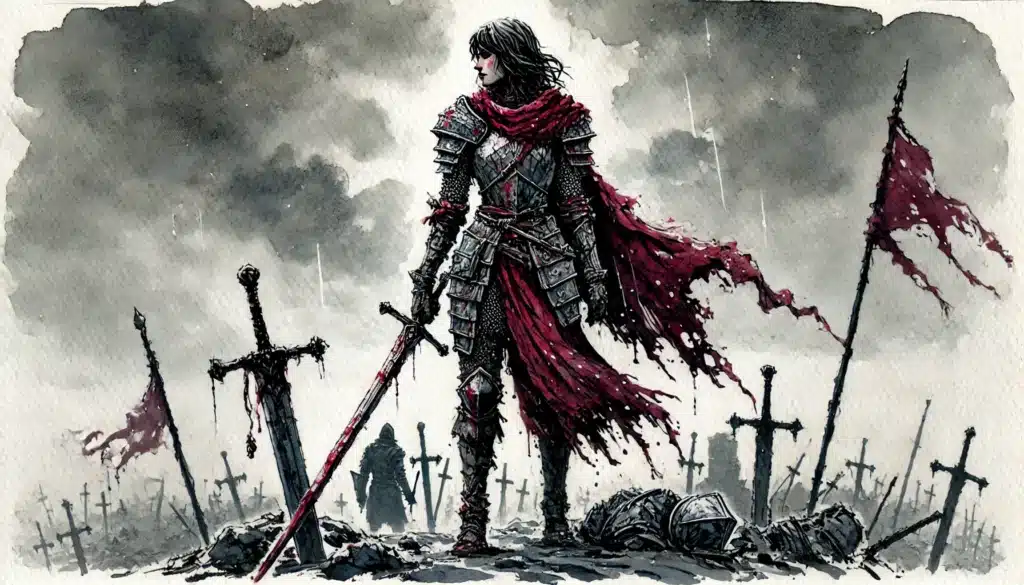
1. Candela Obscura
Candela Obscura is the latest brainchild from Critical Role’s Darrington Press, and it beckons like a flickering lantern in the fog. Set in a shadowed, turn-of-the-century world brimming with occult secrets and forbidden knowledge, players join investigative Circles—chosen societies entrusted to probe the supernatural and defend the innocent. The city is soaked in mystery; monsters lurk behind civilized facades, and every clue is merely the beginning of some deeper rot.
The system revolves around the Circle—each party is more than a band of adventurers, they’re a bonded society with motives, rituals, and secrets of their own. Cases unfold in episodic arcs, blending mystery-solving, personal drama, and the ghastly consequences of delving too greedily into the unknown. Instead of focusing on tactical combat, Candela Obscura leans into narrative momentum, character choices, and moments when magic feels as dangerous as it is dazzling.
⚔️ Fantasy RPG Random Tables Books
Make life as a Gamemaster easier…
If you play Dungeons & Dragons, Pathfinder, or other fantasy RPGs, this
RPG random tables series
is packed with encounters, NPCs, treasure, and more. Available in eBook or print—either way, you’ll have a wealth of adventure ideas at your fingertips.
Aesthetically, Candela Obscura gleams with an analog, vintage touch—the kind of game that feels like flicking through an occult journal, or peeling the wax seal off a forbidden letter. Its rulebook is a gothic artifact in its own right, filled with hand-drawn diagrams, arcane symbols, and shadowy character portraits. Every roll feels intimate, strange, and heavy with meaning.
Standout Features:
- Narrative-driven, investigation-first gameplay
- Circle mechanics reflecting shared histories and resources
- Illumination and Gloom points for supernatural escalation
- Streamlined, approachable character creation
- Analog-style, vintage art direction
- Ritual magic rules tied to personal and cosmic risk
- Episodic case structure ideal for short arcs or ongoing campaigns
For fans of gothic horror, secret societies, and the blurred line between detective and occultist, Candela Obscura isn’t just a diversion—it’s a revelation. It rewards players who crave cosmpolitan settings, ritual-bound mysteries, and the kind of roleplay where secrets are currency and survival is never guaranteed.
Groups who thrive on immersive, character-driven sessions will find Candela Obscura a haunting delight, and a remarkable palate cleanser from traditional dungeon crawls. If your table is aching for atmosphere, gravitas, and the tangled joy of forbidden knowledge, step into the Circle, light your lantern, and let the darkness make the rules.
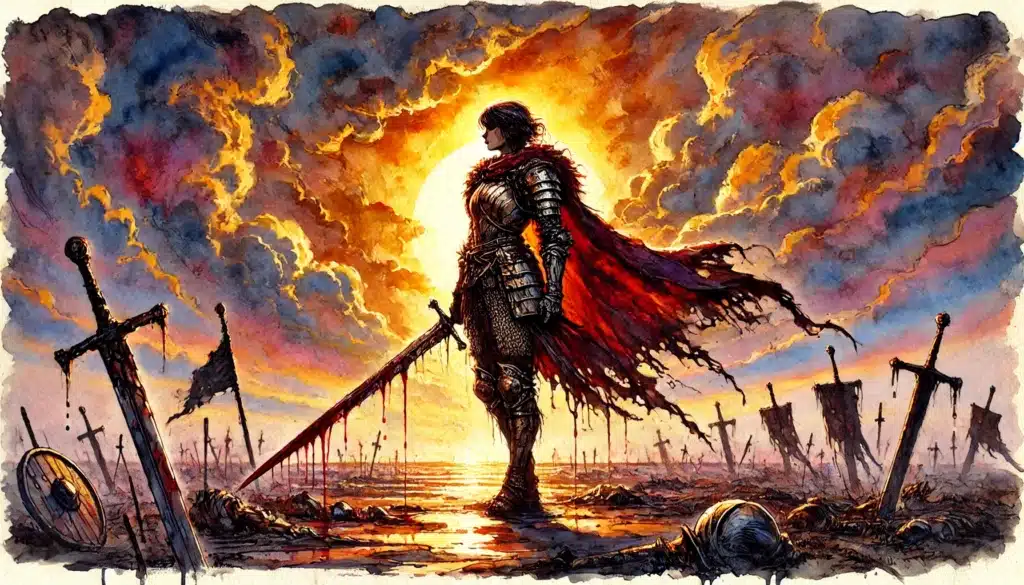
2. Coyote & Crow
Coyote & Crow stands apart as a bold act of imagination: an Indigenous-led sci-fi-fantasy RPG in which European colonization never occurred. Instead, players inhabit a dazzling, high-tech North America guided by advanced cultures, vibrant languages, and spiritual traditions unbroken by conquest. It’s a celebration of possibility—an alternate history where Native innovation, creativity, and resilience shape everything from politics to magic to the skyline.
At its heart, Coyote & Crow is driven by themes of identity, culture, and harmonious (or fraught) relationships with land and spirit. The world is as alive as its characters, with societies built atop deep-rooted philosophies, rich aesthetics, and game mechanics that reward cooperation, discovery, and respectful curiosity. The system uses pools of d12s—a break from the ubiquitous d20—creating a tactile, fast-paced flow and fostering a palpable sense of risk and opportunity.
Gameplay strikes a unique balance between “magitech” progress and spiritual continuity. You’ll see nanite-infused regalia next to ceremonial masks, bioengineered food alongside sacred rituals, and conflicts that hinge as much on cultural negotiation as on weaponry. Coyote & Crow is unabashedly and beautifully its own thing—a full-throated rejection of generic fantasy.
What makes Coyote & Crow unique:
- Indigenous-created alternate history with wholly original lore
- Deep, culture-forward worldbuilding and social systems
- Distinctive d12-based mechanics—a rarity!
- Seamless tech-magic integration (“magitech” society)
- Visual identity inspired by Native art and futurism
- Focus on community, negotiation, and consensus-building
- Multiple playstyles (exploration, diplomacy, action) built-in
- Strong representation and inclusive storytelling tools
- No reliance on European fantasy tropes
- Supports homebrew settings anchored in cultural respect
For groups starving for fresh settings and new mythologies, Coyote & Crow is an absolute must. It’s an invitation to step outside well-worn narrative grooves and experience a speculative world that feels both thrillingly new and deeply authentic.
If your group is motivated by nuanced politics, imaginative worldbuilding, and the joy of learning as you play, few systems will reward your curiosity like Coyote & Crow. Here, every session is a celebration of what RPGs can become when new voices lead the way.
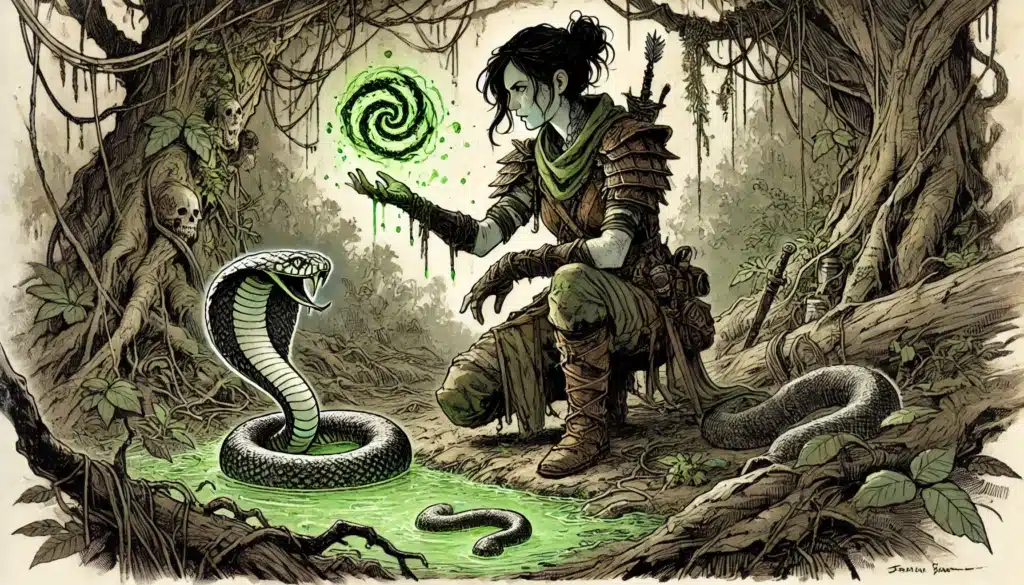
3. Avatar Legends
Step into the whirlwind: Avatar Legends seamlessly weaves the elemental heroics of Avatar: The Last Airbender and The Legend of Korra into a tabletop RPG that radiates kinetic energy and soulful resonance. Instead of just “flavor text,” the world of bending is omnipresent—its rules, risks, and storytelling possibilities flicker in every moment, shaping destinies and dilemmas alike.
Built on the Powered by the Apocalypse (PbtA) engine, Avatar Legends puts characters and their feelings front and center. Dice rarely determine whether you simply “win or lose;” instead, they shape the emotional and narrative fallout, raising the stakes for every triumph and setback. Players select playbooks like The Guardian, The Successor, or The Bold, each one a ticket to a different flavor of legacy, conflict, and growth.
The game hinges on bold moves and balancing acts—both literally (balance is a key stat) and metaphorically (can you stay true to your ideals in a world at war?). Scenes unfold with the pacing of a martial arts epic, and the system’s “exchange” mechanic captures the fluidity and spectacle of bending battles. Drama swells not just from physical conflict, but from the journey of self-discovery and the bonds formed along the way.
⚔️ Fantasy RPG Random Tables Books
Make life as a Gamemaster easier…
If you play Dungeons & Dragons, Pathfinder, or other fantasy RPGs, this
RPG random tables series
is packed with encounters, NPCs, treasure, and more. Available in eBook or print—either way, you’ll have a wealth of adventure ideas at your fingertips.
Highlights of Avatar Legends:
- Playbooks mirroring archetypes from the show (The Icon, The Hammer, etc.)
- Emotional “balance” mechanic central to character development
- Bending-based combat—cinematic, inventive, and collaborative
- Powered by the Apocalypse core system for narrative-driven play
- Strong focus on personal growth, legacy, and relationships
- Campaign setting covers multiple Avatars and historical eras
- Simple, easy-to-learn moveset ideal for all ages
- Safety and inclusivity tools (Session Zero, collaborative worldbuilding)
- Supports both action-packed and reflective, character-driven scenes
For those who burn with a love for character arcs, high drama, and the tension between tradition and rebellion, Avatar Legends is a dream come true. It magnifies the emotional highs and heartbreaks that made the series iconic, letting every player be the protagonist of their own legend.
If your group thrives on cinematic action, expressive roleplay, and the challenge of living up to (or defying) a storied legacy, this system offers a fresh burst of inspiration—a wind-swept leap from the familiar straight into the Avatarverse.
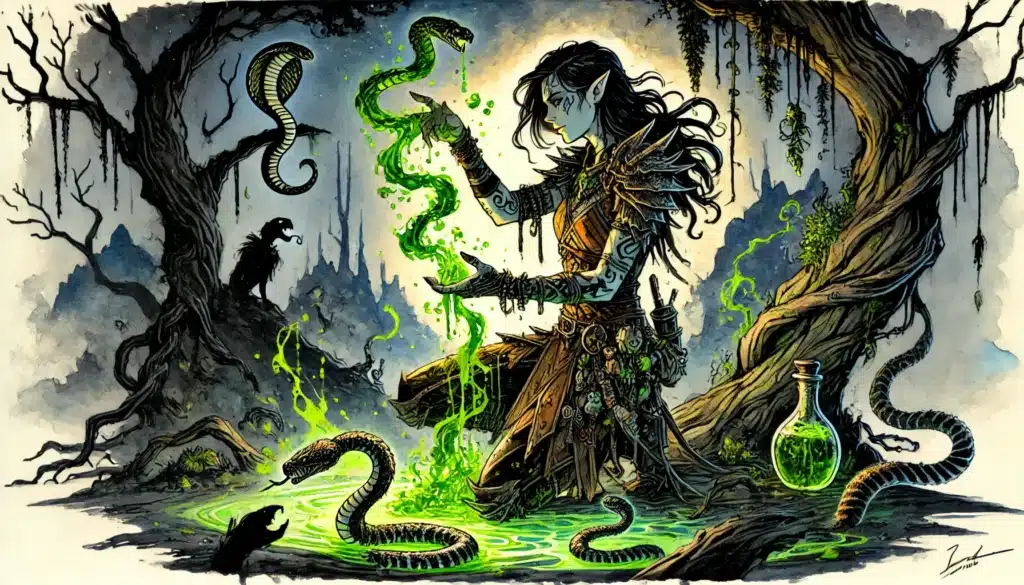
4. Fabula Ultima
Ever wish your tabletop sessions felt like a love letter to classic JRPGs—complete with epic villages, heartfelt drama, swirling spells, and that ever-present sense of fateful destiny? Fabula Ultima is the RPG you’ve been questing for, a system that doesn’t just nod to the likes of Final Fantasy or Chrono Trigger, but channels their very spirit into turn-based storytelling.
At the core, Fabula Ultima is about party dynamics—how groups of unlikely heroes negotiate, clash, and unite against a world-spanning threat. The setting is paintable by the group, shaped by tropes you know and love but always with room for surprise: mysterious crystals, masked villains, and ancient prophecies waiting to be fulfilled. Sessions unspool like an anime episode, blending spectacle and sincerity in equal measure.
The mechanics echo the strategy of a classic RPG while always keeping narrative agency front-and-center. From Limit Breaks that supercharge key moments to intricate class evolutions, Fabula Ultima encourages dramatic gestures—whether that’s leaping in front of a friend, declaring your nemesis, or forging a bond in the heat of the final battle. It’s a game that rewards melodrama, spectacle, and the joy of playing big.
Signature features and mechanics:
- JRPG-inspired visual and narrative design
- Party-driven arcs built around group goals
- Leveling system with dynamic class evolutions
- Limit Breaks for cinematic, high-stakes moments
- Tactical spellcasting with a focus on positioning and combos
- Narrative Beats—plot points that drive character growth
- Bonds and Nemesis mechanics for dramatic tension
- Modular “world seeds” and setting creation rules
- Player-directed side quests and subplots
- Intuitive, easy-to-learn battle system with deep strategy
- Built-in rules for anime-style transformations
- Gorgeous, evocative art inspired by JRPG classics
For anime aficionados and lovers of high drama, Fabula Ultima is practically irresistible. It’s ideal for tables that delight in over-the-top moments, heartfelt revelations, and the wild interplay between destiny and choice.
If your group craves an epic arc—rife with emotional crescendos, side plots, and an ever-building sense of stakes—this system will spark their imaginations. It’s a reminder that structure can be thrilling, especially when every twist feels earned, and every triumph is cinematic.
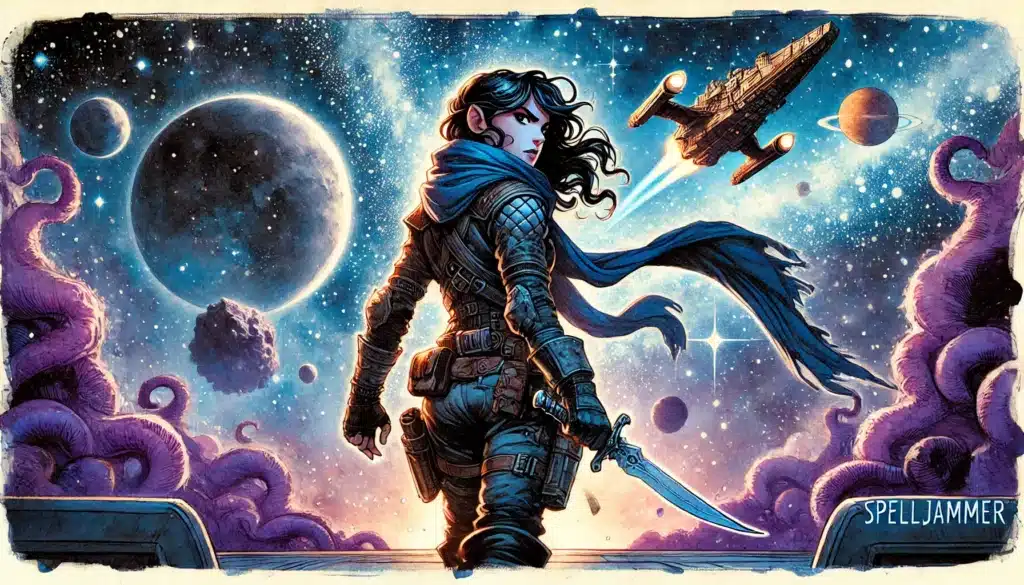
5. Mothership 1e
Claustrophobia. Paranoia. The uncanny hush of drifting through cold, endless void. Mothership invites players to live (and usually die) on the edge of survival—a sci-fi horror RPG that evolved from humble indie zine to a polished first edition with teeth. You’re not heroes; you’re crew—scientists, mercenaries, androids, marooned together on ships that creak and corridors that groan.
Mothership trades traditional campaign arcs for terror and urgency. High lethality means any session could end in a scramble for the escape pod. Choices are haunted by risk: Will you check that airlock? Will you open that sealed hatch, knowing it’s sealed for a reason? The horror is relentless, but fair, and character death becomes a canvas for improvisation and grim, dark-humored creativity.
Mechanically, Mothership is stripped to the bone—rules are quick to learn and easy to teach. Stress and panic are central; as the pressure mounts, so do the mistakes, with a system built for both one-shots and persistent dread. Adventure modules abound, but improvisation is just as welcome. Grab your character sheet and a handful of d10s—survival is not promised.
Try my AI Tabletop RPG generators...and an extensive library of content!
Key features of Mothership 1e:
- Stress and Panic mechanics intensifying group tension
- High-lethality, survival-focused gameplay
- Minimalist rule set—easy prep, fast resolution
- Character archetypes (Android, Marine, Scientist, Teamster)
- Module-ready, with a thriving publishing ecosystem
- Supports both short, brutal campaigns and lethal one-shots
- Tools for ship building, derelict generation, and procedural horror
- Emphasis on isolation, resource scarcity, and paranoia
- Open-ended approach to horror—cosmic, body, or psychological
- DIY ethos, perfect for custom monsters, horrors, or environments
Mothership is ideal for groups seeking adrenaline, terror, and the delicious thrill of not knowing who (if anyone) will make it out alive. It’s the perfect antidote to a campaign that’s gotten too comfortable—a shot of cold, lucid fear into the usual rhythm.
Game masters who want stakes to feel high with minimal prep, or who love improvising tense, dynamic situations, will find Mothership a treasure trove. It’s also a fantastic system for horror-lovers and those who want to explore dark or existential themes without committing to an epic, multi-year arc.
Choosing the Right RPG for Your Group
Selecting a new RPG system is less about picking “the best” and more about finding a fit—a game that matches your table’s curiosity, attention span, and the stories you want to tell. Consider the group’s preferences. Are they hungry for roleplay, or do they thrive on crunchy combat? Do they yearn for high drama, fast mechanics, or the slow burn of survival horror? Understanding these dynamics opens the door to the perfect system.
Tone is another crucial metric. Some games (like Candela Obscura or Mothership) drip with dread, while others (Fabula Ultima, Avatar Legends) burst with optimism and bold color. The depth—or simplicity—of the rules makes a world of difference, especially for groups looking for a fast onboarding or those who revel in mastering subtle mechanics. Finally, campaign length matters: some systems shine in short arcs, others beg for extended sagas.
Here’s a quick side-by-side to orient your search:
| RPG | Setting | Rule Complexity | Roleplay Focus | Ideal Campaign Length |
|---|---|---|---|---|
| Candela Obscura | Occult Mystery Gothic | Medium | Very High | Short Arcs/Cases |
| Coyote & Crow | Indigenous Sci-fi/Fantasy | Medium | High | Ongoing or Episodic |
| Avatar Legends | Elemental Martial Fantasy | Light/Medium | Extremely High | Short-to-Medium Arcs |
| Fabula Ultima | JRPG-Inspired High Fantasy | Medium | High | Structured Long-form |
| Mothership 1e | Sci-fi Survival Horror | Light | Medium | One-Shots/Short Campaigns |
The best way to sample a new ruleset? Run (or play) a one-shot. Short arcs are a low-risk, high-reward approach for testing out tone, pacing, and the unique flavor each game provides. Some systems even support “rotating GMs” or customized settings; let your group vote, and keep the energy fresh.
Ultimately, choosing a new RPG is less a gamble, more an adventure. The act of learning together, of stepping into unfamiliar shoes and rules, is what keeps tabletop gaming vital and infectious. The world is wide—don’t let your play get boxed in.
Final Thoughts on the Rise of Indie and Alt TTRPGs
If Dungeons & Dragons taught us how to gather, roll dice, and build worlds, it also marked the starting line—not the finish. Ten years ago, seeking games outside D&D could feel like swimming upstream. Now, it feels like opening a door to an endless bazaar, each stall lined with worlds awaiting eager hands. Tabletop gaming is no longer a monoculture; it’s messy, colorful, alive with innovation.
This is the golden age of variety. Indie and alternative RPGs don’t just offer quirky mechanics—they champion new voices, cultural perspectives, and stories that once felt impossible to tell at the table. Emerging designers are putting their own dreams, nightmares, and aspirations into print, inviting all of us to play with the unknown. As the community grows more inclusive, so do the games—embracing genres, themes, and identities that have long been sidelined.
For longtime fans, this is a call to creativity. Old habits might feel safe, but every new system you try becomes another tool in your storytelling belt—another flavor, another dialect, another way to turn strangers into a fellowship (or a Circle, or a crew lost aboard a doomed ship). There’s never been a better time to experiment, collaborate, and support game-makers who are rewriting the rules of engagement.
Indie and alt TTRPGs are more than side attractions; they’re at the beating heart of the hobby’s future. When we play boldly, we don’t just keep gaming fun—we keep it alive. Let yourself be surprised. Let your table take creative risks. Show up to your next session ready for anything, knowing that the space beyond D&D is bigger than you think.
Finally, remember: the world of tabletop RPGs is as broad as imagination itself. Stepping beyond D&D isn’t just about novelty—it’s about joy, discovery, and the thrill of charting unknown territory alongside friends. Roll new dice, tell new stories, and keep exploring, because the adventure has only just begun.

